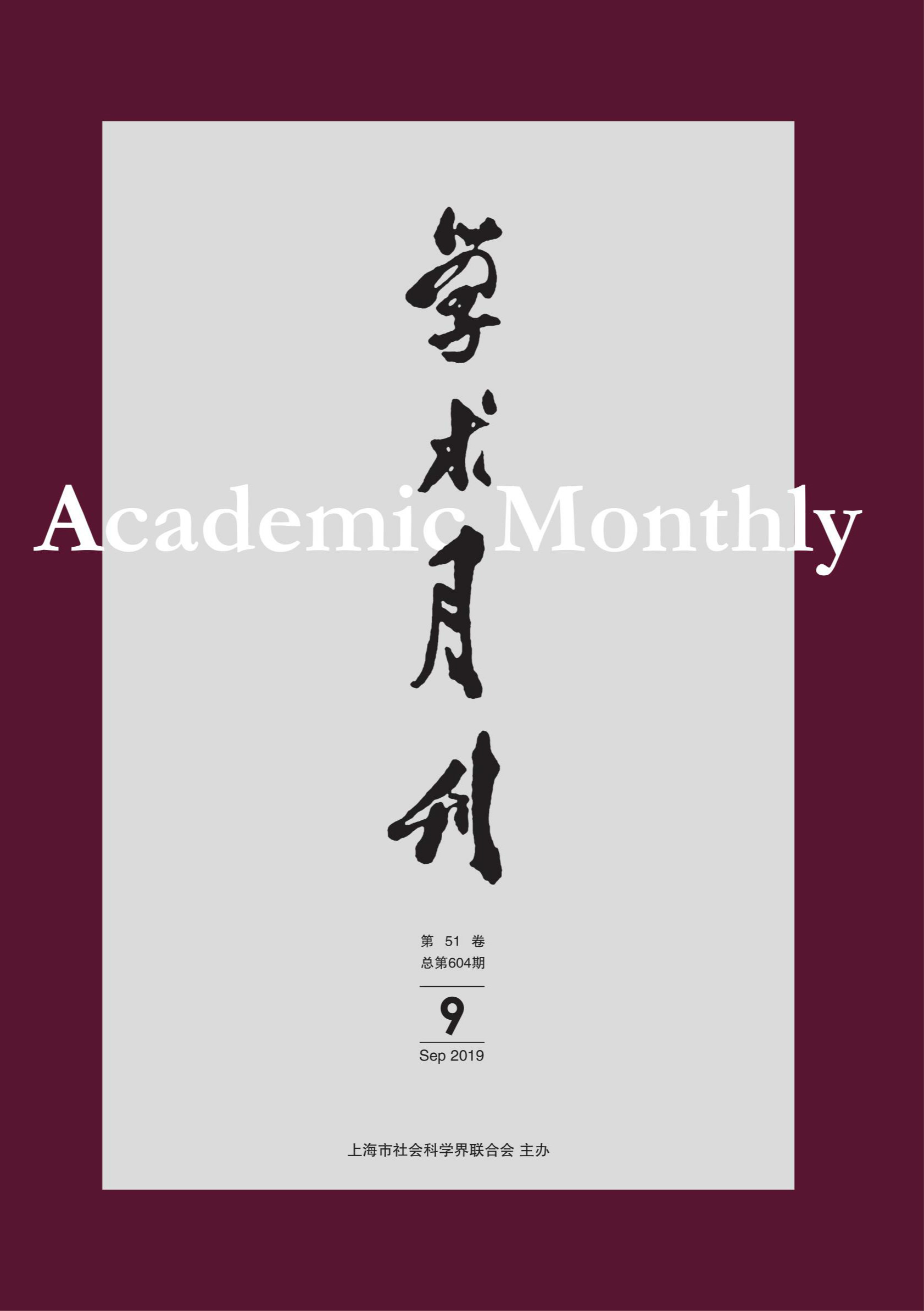Citation:
Guoxiang PENG. “Regulating the Qi ” and “Nourishing the Xin”: Self-Cultivation as Spiritual and Bodily Exercise in Xunzi[J]. Academic Monthly, 2019, 51(9): 18-31.

“Regulating the Qi ” and “Nourishing the Xin”: Self-Cultivation as Spiritual and Bodily Exercise in Xunzi
-
Abstract
Self-cultivation as spiritual and bodily exercise in Xunzi implies two aspects: the ideal personality that the self-cultivation eventually results in, and the skills of “regulating the qi (“气”) and “nourishing the xin” (“心”, heart-mind) as specific and practical methods of self-cultivation. For the former, Xunzi suggested the distinctive concepts of ideal personality, shijunzi (“士君子”) and daru (“大儒”) in addition to shi (“士”) junzi (“君子”) and shengren (“圣人”) inherited from Confucius and Mencius, and defined different levels and types the ideal personality entails. For the latter, as a spiritual and bodily, self-cultivation means a process that the receptive, focused and undisturbed xin regulates the physical qi and nature by learning mentor’s teaching and practicing ritual and music. deshi (“得师”, mentor supervision) and youli (“由礼”, ritual practice) as two keys to this process makes xin nourish the human nature. The nourishment of xin targets the refinement of human nature. Qi primarily means blood and energy which refers to the physical aspect of human being such as desire and psychological instincts and emotions. As a capability of knowing, judging and making choices, xin, even receptive, focused and undisturbed, does not have morality as its intrinsic content. Given both master and ritual and music are outside candidates for xin, the emergence of first mentor and ritual in human history and following the instructions of mentor and ritual are not necessary for the skills of “regulating the qi ” and “nourishing the xin” and the realization of ideal personality consequently becomes a contingent choice and result of heteronomy. However, the self-cultivation as spiritual and bodily exercise based on the guidance of mentor and ritual recommended by Xunzi is more feasible and practical for the majority of people and more applicable and effective for the establishment of a civil society.
-

-
References
-
Access
-
-
[1]
Minli NIE
. Shi and Modern Public Intelecturals. Academic Monthly,
2022, 54(10): 23-32.
-
[2]
. . Academic Monthly,
2017, 49(12): 52-59.
-
[3]
Weixiang DING
. From “Xu and Qi Are Inseparable” to “the Unity of Knowledge and Action”. Academic Monthly,
2020, 52(10): 18-31, 129.
-
[4]
Tao LIANG
. New Interpretations of the Chapter “To Subdue One’s Self and Return to Propriety so as to Accomplish Benevolence” in theAnalects. Academic Monthly,
2020, 52(11): 13-20.
-
[5]
Jia CHEN
. “Does the Deed that Breeds the Emotion”: An Interpretation on John Dewey’s Aesthetic Theory of Expression. Academic Monthly,
2019, 51(6): 143-151.
-
[6]
,
. . Academic Monthly,
2016, 48(04): 186-190.
-
[7]
Jifeng CAI
. The Knowledge, Experience and Translation of Foreign Court Etiquettes in Tongzhi and Guangxu Period. Academic Monthly,
2022, 54(4): 197-209.
-
[8]
Jiyi GAO
, Xin’gui ZENG
. A Study of the Picture of “Zhuan Yao Fang” Annotated by Zheng Xuan in YI Li. Academic Monthly,
2023, 55(1): 173-190.
-
[9]
. . Academic Monthly,
2017, 49(05): 31-39.
-
[10]
Bo YANG
. Redrawing the Chronology of the between Eastern Zhou Dynasty and the Western Zhou Dynasty from the Historical Materials of Zheng State in Tsinghua Bamboo Slips. Academic Monthly,
2021, 53(8): 187-194.
-
[11]
YANG Guorong
. Rituals as the Normative System—— Modern Significance of Classic Studies in The Rituals,Rituals of Zhou Dynasty,and The Book of Rituals. Academic Monthly,
2024, 56(2): 33-44.
-
[12]
Yujie FENG
. The Imitation and Transformation of Impartation Rituals of the Medieval Daoism from the Emperor’s Enthronement Rites of the Han Dynasty. Academic Monthly,
2019, 51(5): 168-184.
-
[13]
. . Academic Monthly,
2017, 49(04): 28-41.
-
[14]
. . Academic Monthly,
2016, 48(01): -.
-
[15]
Haijun CAO
, Sai LIANG
. The Key Code of Understanding “the Governance of China”: “Collaborative Advantage” and “Advantageous Collaboration”. Academic Monthly,
2021, 53(4): 81-91.
-
[16]
Mingming CHEN
. The Rule of Party-State and Rule of Law in Dual Logic. Academic Monthly,
2019, 51(1): 68-76.
-
[17]
. . Academic Monthly,
2016, 48(04): 134-142.
-
[18]
. . Academic Monthly,
2017, 49(11): 67-101.
-
[19]
. . Academic Monthly,
2017, 49(07): 127-135.
-
[20]
,
. . Academic Monthly,
2018, 50(01): 46-53.
-
-



 沪公网安备 31010102003103号
沪公网安备 31010102003103号 DownLoad:
DownLoad: